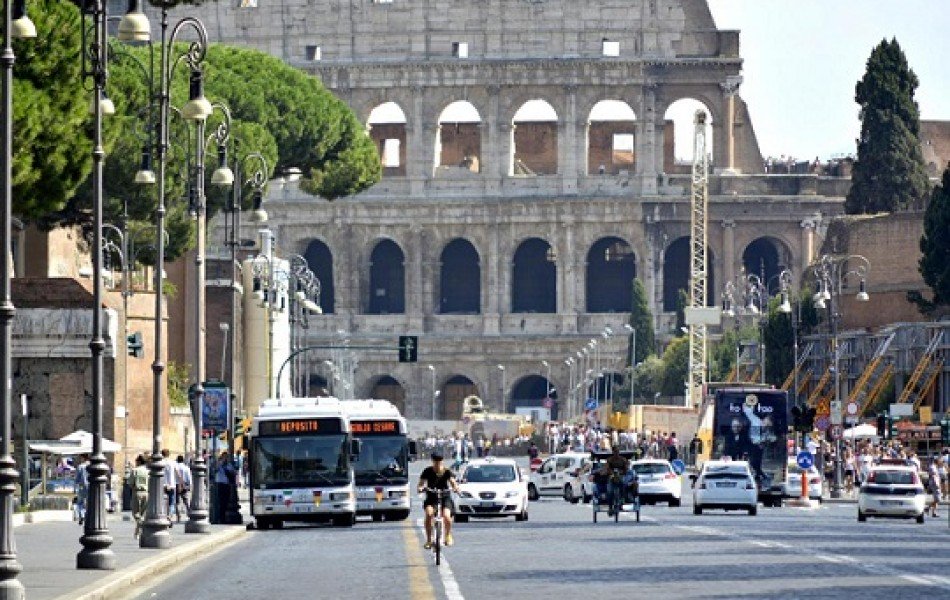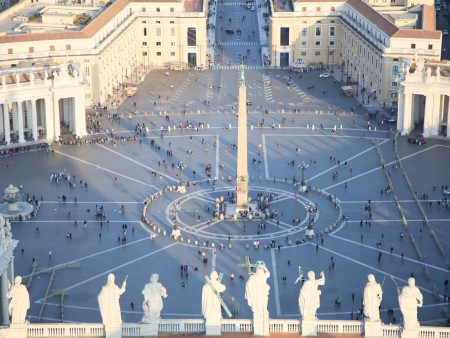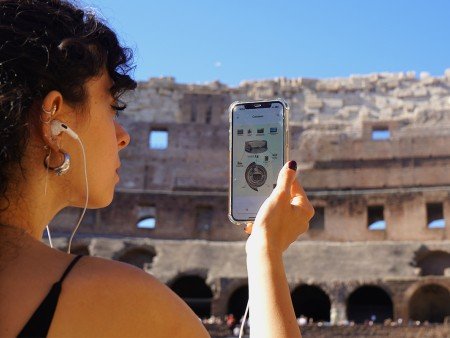The road through Rome's thousand-year history: via dei Fori Imperiali
Learn more about the archaeological treasures, iconic monuments, and scenic views along the historic Via dei Fori Imperiali

06 September 2024
Rome Travel GuideVia dei Fori Imperiali is one of the most fascinating and historically significant streets in Rome, a true journey through time that connects Piazza Venezia to the Colosseum, passing through the heart of ancient Rome. Inaugurated in 1932 during the Fascist regime, this impressive thoroughfare was designed to showcase the grandeur of the Roman Empire, and today it offers visitors a stunning overview of the remains of the Imperial Fora and other iconic monuments. Here’s what to see along Via dei Fori Imperiali.
1. Trajan's Forum
Starting the journey from Piazza Venezia, Trajan's Forum is the first of the Imperial Fora encountered along the way. Built between 107 and 113 AD to celebrate Emperor Trajan's victories in the Dacian Wars, it is the largest and best-preserved of the Imperial Fora. The complex included a vast square, a basilica, a library, and the famous Trajan’s Column, standing 30 meters tall and decorated with reliefs depicting Trajan's military campaigns. The column is a masterpiece of Roman art and an extraordinary example of narrative sculpture.
2. Trajan’s Market
Next to Trajan’s Forum are the Markets of Trajan, a monumental complex considered the first large covered shopping center in history. Built during the same period as the forum, the markets were a place of commerce and administrative activity, with shops, offices, and public spaces distributed over several levels. Today, Trajan’s Markets house the Museum of the Imperial Fora, where you can delve deeper into the history of the fora and admire reconstructions and archaeological finds that illustrate daily life in ancient Rome.
3. Forum of Augustus
Continuing along Via dei Fori Imperiali, you arrive at the Forum of Augustus, built by Emperor Augustus after his victory at the Battle of Philippi in 42 BC. The forum, inaugurated in 2 BC, housed the Temple of Mars Ultor, dedicated to the god of war and considered one of the most important places of worship in ancient Rome. Although much of the original structure has been lost, the imposing columns of the temple and the remains of the forum's perimeter wall are still visible, offering an impression of the site’s architectural grandeur.
4. Forum of Nerva
Between the Forum of Augustus and Trajan's Forum is the Forum of Nerva, built by Emperor Domitian but completed and inaugurated by his successor Nerva in 97 AD. This forum, also known as the Transitory Forum, was a relatively small but highly decorated space intended to connect the previous fora with the Temple of Peace and other surrounding buildings. Today, only a few columns and fragments of the architectural decoration remain visible, but the site still retains a particular charm.
5. Forum of Caesar
On the opposite side of Via dei Fori Imperiali, the Forum of Caesar is the first of the Imperial Fora to be built, inaugurated by Julius Caesar in 46 BC. This complex was created to relieve the overcrowding of the Roman Forum and housed the Temple of Venus Genetrix, erected in honor of the goddess considered the ancestor of the Julian family. The remains of the temple, columns, and pavement of the forum are still visible and offer a glimpse into the power and influence Caesar wielded in ancient Rome.
6. The Colosseum
At the end of Via dei Fori Imperiali, the Colosseum stands majestically, the undisputed symbol of Rome and one of the seven wonders of the modern world. Inaugurated in 80 AD under Emperor Titus, the Colosseum is the largest amphitheater ever built and could hold up to 50,000 spectators for gladiatorial games, naval battles, and other public spectacles. Although technically not part of the Imperial Fora, its presence dominates the end of the street and represents the ideal conclusion of a journey through the history of the Roman Empire.
7. Panoramic Views and Archaeological Excavations
One of the most fascinating aspects of Via dei Fori Imperiali is the opportunity to admire the archaeological excavations and ruins of the ancient fora while walking along the street. Thanks to recent excavations and restorations, new sections of these monumental complexes are constantly being unearthed, offering visitors an increasingly in-depth look at life and urban planning in ancient Rome. Moreover, along the street, there are numerous panoramic viewpoints from which you can enjoy spectacular views of Rome and its monuments. Particularly at sunset, Via dei Fori Imperiali transforms into a place of rare beauty, with the ruins illuminated by the warm colors of the setting sun.
Via dei Fori Imperiali is much more than just a street; it is an open-air museum that tells the millennia-old history of Rome through its monuments and ruins. Every meter of this street represents a piece of history, a link between the ancient and the modern, between the glorious past of the Roman Empire and the vibrancy of contemporary Rome. Whether you are passionate about history, archaeology, or simply curious to explore one of the most evocative places in Rome, Via dei Fori Imperiali offers a unique and unforgettable experience.
Our categories:
You may also be interested ...

Vatican Private Tour with Sistine Chapel & St. Peter's Basilica: Renaissance’s Wonders
Private tour
Discover with a skip the line Private Vatican Tour the Sistine Chapel, Vatican Museums and St Peter’s Basilica
starting from: € 275

Colosseum Guided Audio Tour with Roman Forum and Palatine Hill
Private tour
Discover Ancient Rome’s secrets and history with our immersive Colosseum guided audio tour, rich in image and content
starting from: € 51 € 42